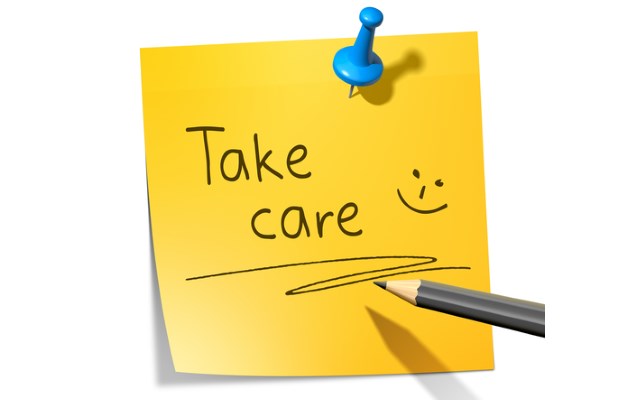

Travel Tips for Staying Safe are crucial for any traveler. Planning a trip should extend beyond choosing destinations and booking accommodations. Safety considerations are paramount for any journey, especially for international travel. This comprehensive guide provides vital precautions and actionable advice to safeguard your well-being and make your travel experiences enjoyable and worry-free. This guide will equip you with the knowledge and skills needed to navigate potential risks proactively. We’ll cover crucial steps for protecting your valuables, managing emergencies, and adjusting your approach when visiting high-risk areas. Let’s embark on a safer and more fulfilling travel journey!
Understanding the Importance of Travel Safety
The Significance of Proactive Measures
Staying safe while traveling is not just a precaution, but an essential part of a rewarding travel experience. Every traveler has the right to enjoy their trip without fear. Planning your journey with safety in mind is key. It’s not about stifling excitement, but about responsibly managing risks. Every destination has its unique safety considerations. Understanding these allows you to adapt your behavior to minimize potential harm.
Potential Risks and Concerns
From petty theft to more serious dangers, numerous risks exist. Traveling abroad can expose travelers to different cultural norms, diverse local laws, and potential health concerns. Accidents, illnesses, and even scams can disrupt your journey. Understanding potential risks allows you to tailor your safety strategies to your destination.
Implementing Safety Precautions
This guide will equip you with essential safety tips, empowering you to make informed decisions. It’s vital to anticipate potential dangers and have a plan in place. Knowing what to do in case of emergencies and handling common situations with confidence will help create a more enjoyable travel experience.
Protecting Your Valuables During Travel
Prioritize Security
Protecting your valuables is a key aspect of travel safety. Research your destination thoroughly before you leave, looking for any safety concerns. Be mindful of your belongings in crowded places and public transportation. Don’t advertise expensive items. Avoid carrying large amounts of cash, using trusted money transfer services for international payments.
Secure Storage and Transportation
Hotel safes, designated storage areas, or secure luggage are critical for safeguarding valuable items. Using secure pouches, backpacks, or bags is advisable for everyday carry. Keeping your passport and important documents in a safe place that’s easily accessible is crucial.
Managing Emergencies During Your Trip
Creating a Safety Plan
Develop a comprehensive emergency plan, including contacting family or friends. Provide details about your trip to a trusted contact. Ensure emergency numbers are easily accessible. Be familiar with local emergency services.
Practical Contingency Measures
Keep a copy of your passport and important documents separate from your originals. Consider travel insurance that covers medical emergencies and lost belongings. Learn basic phrases in the local language for easier communication during emergencies.
Adapting to High-Risk Areas
Thorough Research and Preparation
High-risk areas require special attention and preparation. Utilize travel advisories and safety guidelines provided by the government. Research and anticipate potential issues. Adapting to local customs and norms is crucial for navigating these areas. Adjust your behavior according to the local culture.
Adjusting Travel Behavior
Be aware of your surroundings. Keep an eye on your belongings. Avoid walking alone at night. Inform trusted contacts about your plans. Keep in mind that common safety rules apply, but adjusting for the specific conditions of your destination is necessary.
Essential Travel Documents and Insurance
Staying Organized and Prepared
Keeping essential documents organized, readily available, and protected from loss is vital. Travel insurance should cover various scenarios, ensuring you’re protected against emergencies and unforeseen circumstances. Having necessary documents such as passports, visas, and tickets easily accessible is important.
Using Technology for Safety
Mobile Safety Tools and Apps
Modern technology offers various safety tools. Apps that provide real-time location tracking, emergency contacts, or safety alerts can be vital. Using GPS location-sharing apps allows family and friends to track your whereabouts and get assistance in emergencies.
Understanding Local Customs and Laws
Cultural Sensitivity and Respect
Understanding local customs and laws will make your travel more enjoyable and safe. Respect local traditions and customs, avoiding situations that could lead to misunderstandings. Be well-versed in the local laws and regulations. Respecting local laws and cultures creates positive travel experiences.
Staying Alert and Aware of Surroundings
Personal Safety Strategies
Maintaining situational awareness is crucial. Look out for unusual behavior and avoid walking alone in poorly lit or secluded areas. Listen to your instincts and do not hesitate to change your plans if something seems off or dangerous.
The Role of Communication During Travel
Keeping Contacts Informed
Keeping your contacts informed about your itinerary is vital. Share your location details periodically. Communicating with someone about your whereabouts ensures that you’re easily located should the need arise and promotes peace of mind for your loved ones and you. Use social media, text, or phone calls to let people know where you are and how you’re doing.
FAQs
What are the most important safety precautions for solo female travelers?
For solo female travelers, extra vigilance is essential. Always let someone know your itinerary and expected return time. Consider carrying a personal safety alarm or device, and avoid walking alone at night. Choose well-lit and populated areas, and be aware of your surroundings. Trust your instincts; if a situation feels unsafe, remove yourself from it immediately. Research local customs and laws, and communicate clearly with local authorities if needed.
How can I protect my valuables while traveling?
To protect your valuables while traveling, be mindful of your surroundings. Don’t flaunt expensive items. Use secure hotel safes or designated storage areas for valuables. Avoid carrying large sums of cash, and utilize trusted money transfer services for international payments. Be cautious of scams and false promises. Consider purchasing travel insurance to safeguard against loss or theft. Keep your passport and important documents in a secure, easily accessible location.
What steps should I take in case of an emergency during my trip?
In case of emergency during your trip, remain calm. Identify your nearest emergency services like hospitals, police stations, or embassies. Contact your emergency contact immediately to alert them. If you have travel insurance, report the incident according to the terms. Collect any relevant documentation, such as incident reports, and contact your embassy or consulate for assistance. Document everything as accurately as possible for future reference.
What precautions should I take when traveling to high-risk areas?
When traveling to high-risk areas, thorough research is crucial. Consult travel advisories from reputable sources. Be hyper-aware of your surroundings, especially in crowded areas. Inform your hotel, friends, or family about your itinerary. Avoid displaying expensive belongings. Stay updated on local news and any potential threats. Consider carrying a local SIM card for reliable communication.
In conclusion, prioritizing safety during travel is paramount for a worry-free adventure. By following these Travel Tips for Staying Safe, you can confidently explore the world while minimizing potential risks. Remember to adapt these guidelines to your specific destinations and situations. Stay informed, be proactive, and enjoy your travels with peace of mind! Book your next adventure today!